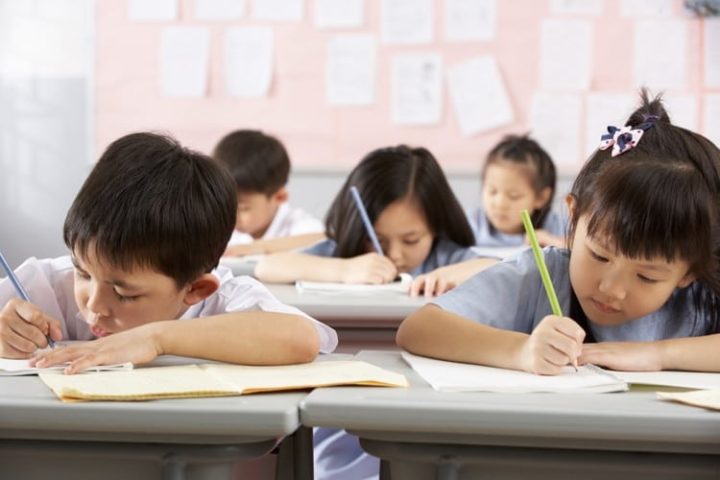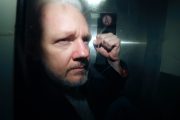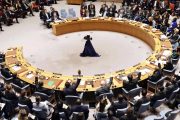
Teachers in Hong Kong will be mandated to report “potential violations” of the city’s laws to the authorities, in a further suppression of freedom of speech in the city’s schools, as well as passing an examination on their knowledge of a stringent national security law, Radio Free Asia (RFA) reported.
“Starting from the 2023/24 school year, all newly-appointed teachers in [publicly funded] schools are required to pass the Basic Law and National Security Law Test in order to be considered for appointment,” the Education Bureau said in a recent circular to schools.
“The requirement applies to all ranks of the teacher grade (including principals),” it mentioned.
Besides, the bureau has amended professional guidelines to teachers to incorporate a responsibility to report any “potential” law-breaking in schools, or breach of “generally acceptable moral standards,” whether by students or staff.
“In the event of receiving information on matters that involve a breach of laws and regulations or deviation from the moral standards generally acceptable to society, or identifying any potential illegalities or irregularities on campus, handle the matters and report to the school management, police and/or the departments concerned as appropriate,” the altered professional guidelines indicated.
Although teachers blamed for breaching the law can defend their case in court, they could still be removed from the teaching register by the bureau regardless of the verdict of any criminal prosecution in court, the guidelines cautioned.
“Even the teachers are not convicted for various reasons, if their acts are not accepted from the perspective of teaching profession or students’ wellbeing, the [bureau] will take appropriate actions in respect of their teachers’ registration,” the guidelines added.
Teachers also have a responsibility to “consciously safeguard national security, social order and public interest” and “cultivate in students a sense of belonging towards the country,” the guidelines explained.
Moreover, they will be held accountable for posts on social media platforms, entailing content regarded as “inauthentic or objectionable,” the guidelines stipulated without specifying what that might imply.
In response to the recent guidelines, a Hong Kong teacher with a decade of teaching experience who gave only the nickname Echo said this is the first time teachers have been required to take examinations testing their political attitudes.
“I don’t think this is reasonable,” she lambasted. “How is mastery of the national security law related to the subject matter of somebody teaching math or physical education?”
“I think it’s very dubious … given that it’s a compulsory requirement [for employment], it looks a lot like a political review,” Echo said, alluding to the political vetting of public servants at every level in mainland China for allegiance to the Communist Party line.
“The government is fond of saying that politics has no place in schools, but now it’s the government that is putting politics in schools,” she added.
A former school teacher turned illustrator who goes by the nickname Vawongsir said the new guidelines are evident that the authorities only want pro-China people in the education system.
“The code is not very clear about what you can and can’t say [nowadays],” he said. “In the past, when I was a teacher in Hong Kong, we would have discussed the latest news in class in Liberal Studies, for example, the white paper [anti-lockdown] protests [in mainland China].”
Chinese officials and pro-Beijing media criticized the Liberal Studies critical thinking program, unveiled in Hong Kong schools in 2009, for various mass demonstrations in recent years. Some of these protests included the 2019 protests that started as a movement against extradition to mainland China and widened to encompass demands for fully democratic elections.
Former educational assessment official Yeung Ying Yue said teachers could be singled out with the ambiguous wording in the guidelines about not “violating social order.”
“It looks as if it will be quite common for teachers to function as secret police in future,” Yeung said. “It’s totally in line with the new order in Hong Kong right now, which privileges the left [Communist Party supporters] over the right [those who support democracy].”
“We will see both teachers and students starting to put self-protection first, and this will inevitably affect mutual trust between teachers and students,” he said, elaborating that the new guidelines strip teachers from any professional autonomy and relegate them to obedient servants of the state.
In September last year, St Francis Xavier’s School in Hong Kong declared that it had suspended 14 students for three days for “committing disrespectful acts” in not being present for a flag-raising ceremony. The ceremony has been required in government-funded schools in Hong Kong since January 1, 2022 to inculcate Beijing’s “patriotic education” program in the minds of young people following the 2019 protest movement.
Furthermore, universities are also launching mandatory “national security education” classes and examinations to undergraduate students, with students at the Chinese University of Hong Kong forced to attend the one-credit class as a condition for graduation from September 2022.
Meanwhile, the Hong Kong government has unearthed its “youth blueprint” to nurture a new generation of “patriotic” young people who are pro-China and who welcome “positive thinking,” a political buzzword in mainland China under leader Xi Jinping.
Home and youth affairs secretary Alice Mak declared that the program is focused on young people aged 12-39 who form almost one third of Hong Kong’s population.
Sung Yun Wing, who founded Project Change, a non-profit providing psychosocial counseling and support to young people detained and prosecuted for their involvement in the 2019 protest movement, remarked that young people in Hong Kong will probably not respond well to top-down and stringent efforts to market “patriotism” to them.
He said Mak’s “blueprint” had omitted mentioning his group’s suggestion that the government aid former protesters by supporting them to attain professional qualifications as part of their rehabilitation package.
“The higher their level of educational or professional attainment, the harder it is for these young people to be rehabilitated,” Sung told RFA.
Over 10,000 people have been arrested and 2,800 prosecuted under a post-2019 citywide repression on dissent under the national security law, as well as colonial-era public order and sedition laws, according to testimonies from activists and rights groups.
“For people like accountants, finance professionals, engineers and nurses, there’s no point in the government spending all that money on ‘career planning’ if they can’t get professional qualifications,” Sung said.
“Financial institutions are extremely wary of hiring even people who [were arrested but] not tried or prosecuted, despite the presumption of innocence principle we practice in Hong Kong.”
“Even internships are asking for background checks,” he said, urging the authorities to grant an amnesty to some 7,000 “minor cases” that are awaiting prosecution owing to a paucity of evidence, three years after the 2019 protests ceased.
Earlier inOctober 2020, a primary school teacher in the city was dismissed for supposedly asking students questions about freedom of speech and independence from China.
The Education Bureau alleged that the unnamed teacher had breached the territory’s de facto constitution, the Basic Law, by releasing a message about independence.
The bureau explained that it had decided to strike off the teacher’s registration to “protect students’ interest and safeguard teachers’ professionalism and public trust in the teaching profession”.
The teacher was allegedly fired for showing students a video featuring a pro-independence activist, and then asked the class “what is freedom of speech?”, and “according to the video, what is the reason for advocating Hong Kong independence?”Reports from the South China Morning Post indicated that the sacked teacher would be unable to teach in Hong Kong any longer, as teachers working in the city’s schools have to be registered with the Education Bureau.



